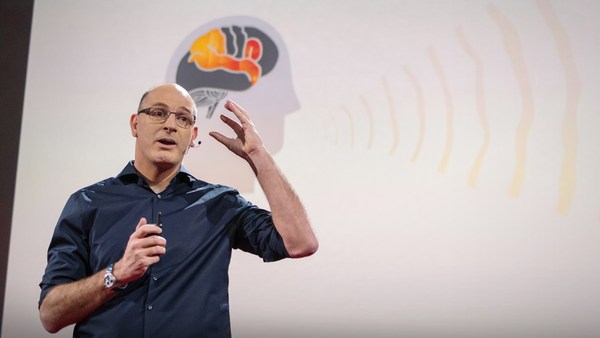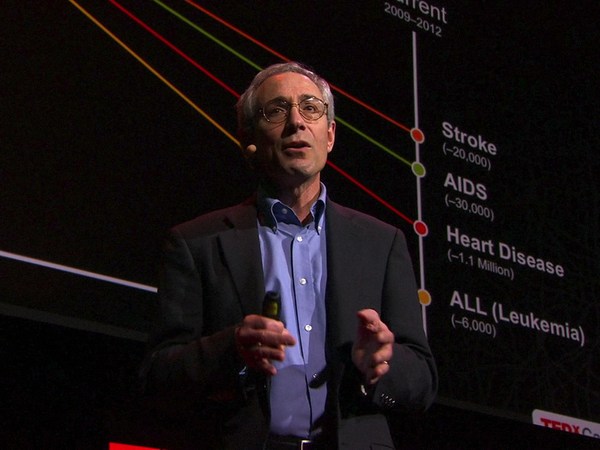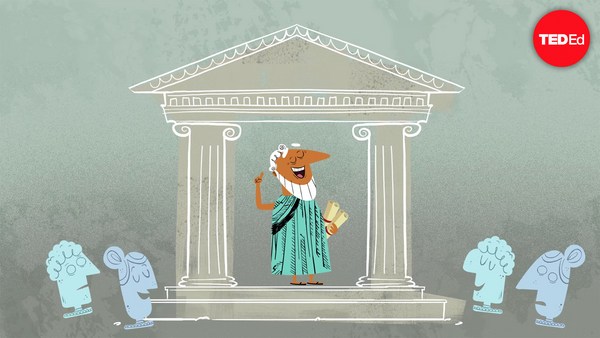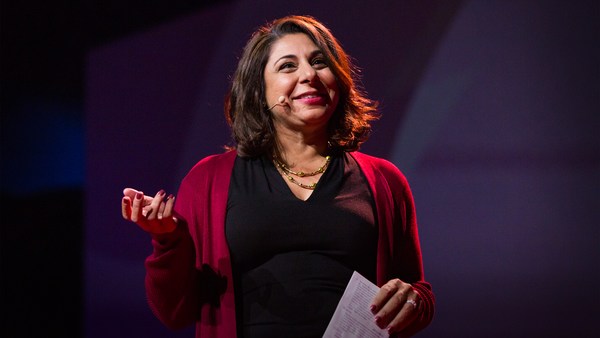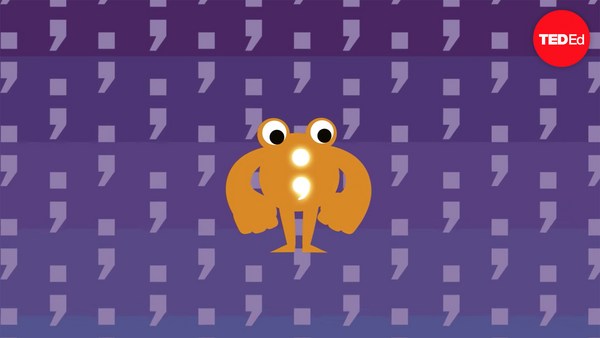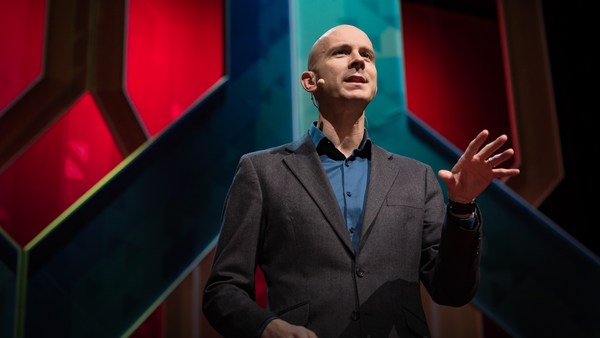We have historical records that allow us to know how the ancient Greeks dressed, how they lived, how they fought ... but how did they think?
One natural idea is that the deepest aspects of human thought -- our ability to imagine, to be conscious, to dream -- have always been the same. Another possibility is that the social transformations that have shaped our culture may have also changed the structural columns of human thought.
We may all have different opinions about this. Actually, it's a long-standing philosophical debate. But is this question even amenable to science?
Here I'd like to propose that in the same way we can reconstruct how the ancient Greek cities looked just based on a few bricks, that the writings of a culture are the archaeological records, the fossils, of human thought.
And in fact, doing some form of psychological analysis of some of the most ancient books of human culture, Julian Jaynes came up in the '70s with a very wild and radical hypothesis: that only 3,000 years ago, humans were what today we would call schizophrenics. And he made this claim based on the fact that the first humans described in these books behaved consistently, in different traditions and in different places of the world, as if they were hearing and obeying voices that they perceived as coming from the Gods, or from the muses ... what today we would call hallucinations. And only then, as time went on, they began to recognize that they were the creators, the owners of these inner voices. And with this, they gained introspection: the ability to think about their own thoughts.
So Jaynes's theory is that consciousness, at least in the way we perceive it today, where we feel that we are the pilots of our own existence -- is a quite recent cultural development. And this theory is quite spectacular, but it has an obvious problem which is that it's built on just a few and very specific examples. So the question is whether the theory that introspection built up in human history only about 3,000 years ago can be examined in a quantitative and objective manner.
And the problem of how to go about this is quite obvious. It's not like Plato woke up one day and then he wrote, "Hello, I'm Plato, and as of today, I have a fully introspective consciousness."
(Laughter)
And this tells us actually what is the essence of the problem. We need to find the emergence of a concept that's never said. The word introspection does not appear a single time in the books we want to analyze.
So our way to solve this is to build the space of words. This is a huge space that contains all words in such a way that the distance between any two of them is indicative of how closely related they are. So for instance, you want the words "dog" and "cat" to be very close together, but the words "grapefruit" and "logarithm" to be very far away. And this has to be true for any two words within the space.
And there are different ways that we can construct the space of words. One is just asking the experts, a bit like we do with dictionaries. Another possibility is following the simple assumption that when two words are related, they tend to appear in the same sentences, in the same paragraphs, in the same documents, more often than would be expected just by pure chance. And this simple hypothesis, this simple method, with some computational tricks that have to do with the fact that this is a very complex and high-dimensional space, turns out to be quite effective.
And just to give you a flavor of how well this works, this is the result we get when we analyze this for some familiar words. And you can see first that words automatically organize into semantic neighborhoods. So you get the fruits, the body parts, the computer parts, the scientific terms and so on.
The algorithm also identifies that we organize concepts in a hierarchy. So for instance, you can see that the scientific terms break down into two subcategories of the astronomic and the physics terms. And then there are very fine things. For instance, the word astronomy, which seems a bit bizarre where it is, is actually exactly where it should be, between what it is, an actual science, and between what it describes, the astronomical terms.
And we could go on and on with this. Actually, if you stare at this for a while, and you just build random trajectories, you will see that it actually feels a bit like doing poetry. And this is because, in a way, walking in this space is like walking in the mind.
And the last thing is that this algorithm also identifies what are our intuitions, of which words should lead in the neighborhood of introspection. So for instance, words such as "self," "guilt," "reason," "emotion," are very close to "introspection," but other words, such as "red," "football," "candle," "banana," are just very far away.
And so once we've built the space, the question of the history of introspection, or of the history of any concept which before could seem abstract and somehow vague, becomes concrete -- becomes amenable to quantitative science.
All that we have to do is take the books, we digitize them, and we take this stream of words as a trajectory and project them into the space, and then we ask whether this trajectory spends significant time circling closely to the concept of introspection.
And with this, we could analyze the history of introspection in the ancient Greek tradition, for which we have the best available written record. So what we did is we took all the books -- we just ordered them by time -- for each book we take the words and we project them to the space, and then we ask for each word how close it is to introspection, and we just average that. And then we ask whether, as time goes on and on, these books get closer, and closer and closer to the concept of introspection.
And this is exactly what happens in the ancient Greek tradition. So you can see that for the oldest books in the Homeric tradition, there is a small increase with books getting closer to introspection. But about four centuries before Christ, this starts ramping up very rapidly to an almost five-fold increase of books getting closer, and closer and closer to the concept of introspection. And one of the nice things about this is that now we can ask whether this is also true in a different, independent tradition.
So we just ran this same analysis on the Judeo-Christian tradition, and we got virtually the same pattern. Again, you see a small increase for the oldest books in the Old Testament, and then it increases much more rapidly in the new books of the New Testament. And then we get the peak of introspection in "The Confessions of Saint Augustine," about four centuries after Christ. And this was very important, because Saint Augustine had been recognized by scholars, philologists, historians, as one of the founders of introspection. Actually, some believe him to be the father of modern psychology.
So our algorithm, which has the virtue of being quantitative, of being objective, and of course of being extremely fast -- it just runs in a fraction of a second -- can capture some of the most important conclusions of this long tradition of investigation. And this is in a way one of the beauties of science, which is that now this idea can be translated and generalized to a whole lot of different domains.
So in the same way that we asked about the past of human consciousness, maybe the most challenging question we can pose to ourselves is whether this can tell us something about the future of our own consciousness. To put it more precisely, whether the words we say today can tell us something of where our minds will be in a few days, in a few months or a few years from now.
And in the same way many of us are now wearing sensors that detect our heart rate, our respiration, our genes, on the hopes that this may help us prevent diseases, we can ask whether monitoring and analyzing the words we speak, we tweet, we email, we write, can tell us ahead of time whether something may go wrong with our minds. And with Guillermo Cecchi, who has been my brother in this adventure, we took on this task. And we did so by analyzing the recorded speech of 34 young people who were at a high risk of developing schizophrenia.
And so what we did is, we measured speech at day one, and then we asked whether the properties of the speech could predict, within a window of almost three years, the future development of psychosis. But despite our hopes, we got failure after failure. There was just not enough information in semantics to predict the future organization of the mind. It was good enough to distinguish between a group of schizophrenics and a control group, a bit like we had done for the ancient texts, but not to predict the future onset of psychosis.
But then we realized that maybe the most important thing was not so much what they were saying, but how they were saying it. More specifically, it was not in which semantic neighborhoods the words were, but how far and fast they jumped from one semantic neighborhood to the other one. And so we came up with this measure, which we termed semantic coherence, which essentially measures the persistence of speech within one semantic topic, within one semantic category.
And it turned out to be that for this group of 34 people, the algorithm based on semantic coherence could predict, with 100 percent accuracy, who developed psychosis and who will not. And this was something that could not be achieved -- not even close -- with all the other existing clinical measures.
And I remember vividly, while I was working on this, I was sitting at my computer and I saw a bunch of tweets by Polo -- Polo had been my first student back in Buenos Aires, and at the time he was living in New York. And there was something in this tweets -- I could not tell exactly what because nothing was said explicitly -- but I got this strong hunch, this strong intuition, that something was going wrong. So I picked up the phone, and I called Polo, and in fact he was not feeling well. And this simple fact, that reading in between the lines, I could sense, through words, his feelings, was a simple, but very effective way to help.
What I tell you today is that we're getting close to understanding how we can convert this intuition that we all have, that we all share, into an algorithm. And in doing so, we may be seeing in the future a very different form of mental health, based on objective, quantitative and automated analysis of the words we write, of the words we say.
Gracias.
(Applause)
